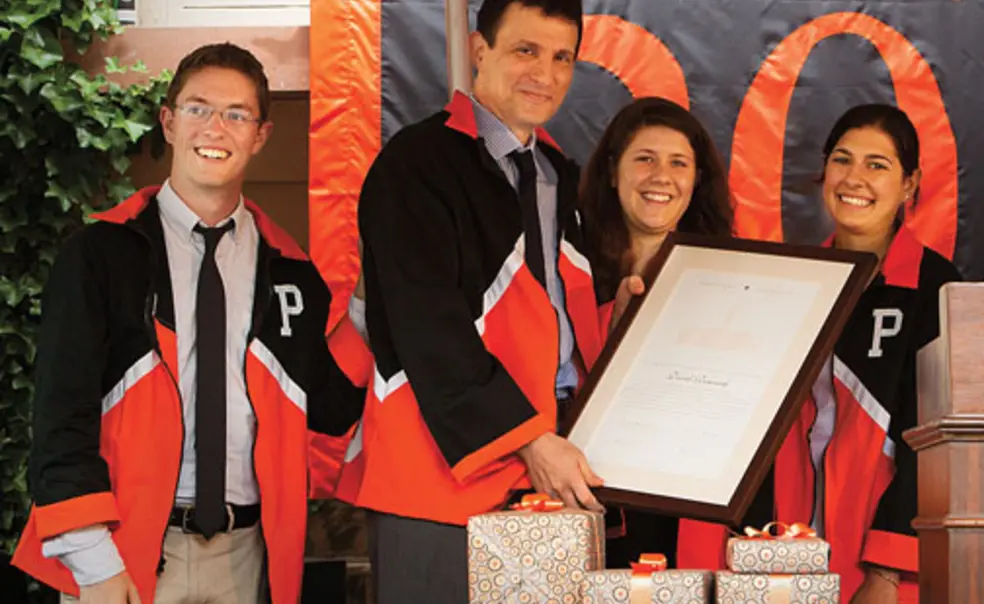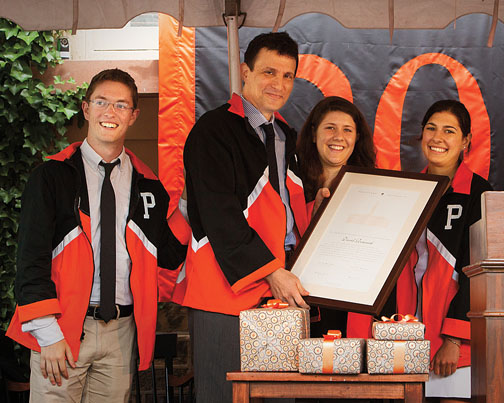From the Editor
As a former education writer and as the editor of PAW, I’ve spent many glorious spring days at graduation ceremonies. I once identified with the valedictorians: their unbridled enthusiasm, their sense of limitless potential. Now I find the words of the adult speakers most affecting.
In his address, valedictorian Aman Sinha ’13 told the story of soccer star Lionel Messi, who as a boy in Argentina was diagnosed with a growth-hormone disorder that would have caused many players to give up the game. But Messi signed a contract with Futbol Club Barcelona to join a youth academy, and flourished. Blessed with talent that was nurtured at a young age, Messi signed with Barcelona only when it agreed to pay for expensive growth-hormone treatments that his family could not afford, allowing him to grow and develop into one of the game’s greatest players.
Sinha said Messi’s story showed how “regardless of the cards we have been dealt, the future we create is entirely within our hands” — a message that surely resonated with the new grads sitting before him. But hardships notwithstanding, both Messi and Princeton graduates have been dealt excellent cards. It was the adult speakers who addressed the question of how to play them.
President Tilghman at Commencement, Federal Reserve Chairman Ben S. Bernanke at Baccalaureate, and New Yorker editor David Remnick ’81 at Class Day spoke on similar themes — themes of service, ethical decision-making, and adaptation when life departs from the playbook. Tilghman called on the new graduates to “affirmatively make a choice to serve.” Bernanke reminded the seniors that those who are lucky have the greatest responsibility to “contribute to the betterment of the world, and to share their luck with others.” Remnick asked them to attend to freedom of all sorts — as individuals going about their daily tasks and in their everyday relationships. Freedom, he said, “isn’t something that you can farm out to the experts.”
The main audience for these Commencement-week speakers, of course, was the 2,100-plus young people getting Princeton undergraduate and advanced degrees – each one with that fresh hand of good cards. But the challenge is greater, I think, as the years pass, and we find that we must throw out some of our cards as we pick up new ones – some sought after, some accepted out of obligation; some liberating, some limiting. And so the speakers were talking to us, too.













No responses yet